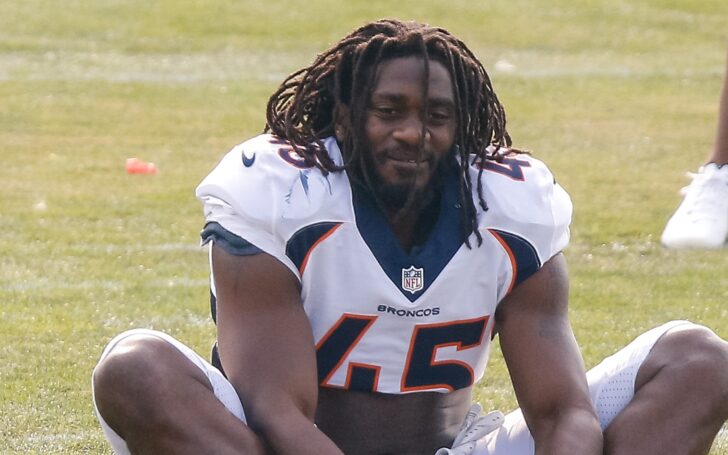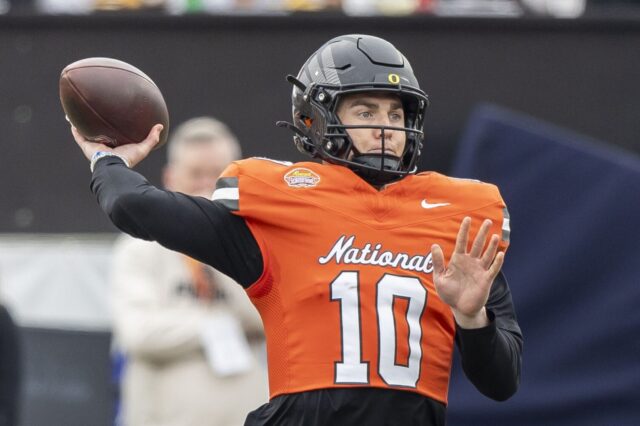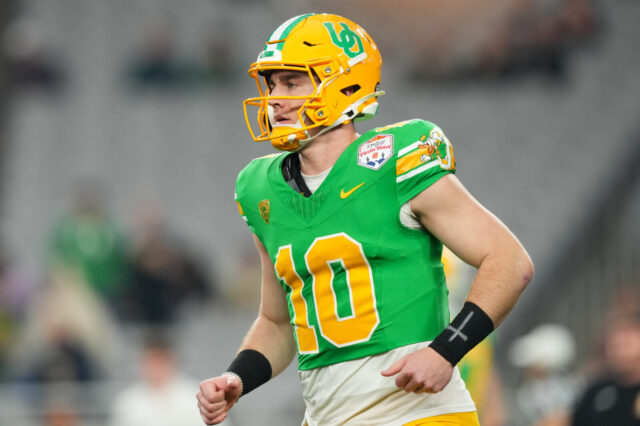2020 was an historically difficult year for just about everyone.
As a pandemic raged on, many lost their jobs — or even worse, lost their life — to COVID-19. Luckily for NFL players and fans, the National Football League was able to push forward — however sloppily and inconsistently they did so — to give us a full, 16-game regular season complete with playoffs and the Super Bowl.
Amidst all the politicization of everything, including mask-wearing and a pandemic, the weekly distraction of football games was more meaningful and welcomed than possibly at any other time. Ever.
Of course, it wasn’t easy. Last year at this time, NFL clubs were forced to conduct meetings online only instead of in-person, which meant far less time to bond with teammates or to learn a new scheme. Which was the case for Drew Lock and the Denver Broncos’ young offense, who saw Pat Shurmur take over as coordinator.
And now that OTAs are about to roll around again, the National Football League put out guidelines for teams to report weekly how many of their employees are vaccinated. The league also explained to every team that vaccines are available for anyone over the age of 16 across the country (they already are in Colorado) or soon will be.
Nearly immediately after that, the Broncos players sent out a memo through the NFLPA explaining, “COVID-19 remains a serious threat to our families and to our communities, and it makes no sense for us as players to put ourselves at risk during this dead period.”
Heck, it doesn’t really make sense for them to put their lives at risk during the season, either, and Ja’Wuan James famously opted out last year.
But, starting linebacker Alexander Johnson wasn’t happy because he believes what we are currently living through is a, “planned pandemic.” (Note: There is no feasible way for anyone to plan a global pandemic. Furthermore, there is no credible evidence to suggest this current COVID-19 pandemic was planned.)
Hell nah!! I’m not with the COVID-19 excuses… Plan Pandemic!! https://t.co/DkAY476Zuy
— Alexander J Johnson (@Alexander_CB45) April 13, 2021
Likely because it wasn’t clear, Johnson followed up with this tweet, explaining he stands with his teammates but, yes, he believes the pandemic was planned.
I’m definitely rocking with my team and support my teammates about not being in person based off all the other factors that help the individual players, just not for excuses around a planned pandemic.
— Alexander J Johnson (@Alexander_CB45) April 13, 2021
Frustration is valid. Johnson likely was looking forward to getting to practice with his teammates in person. And to that point, the Broncos will continue to have their facility open for workouts, but they won’t be doing the usual OTA regimen.
In reality, everyone is frustrated at this point with the current pandemic we’re living through. No one wants to wear masks, but we need to do so to keep each other safe. People don’t really want to get a needle jabbed into their arm, but we’re doing so to keep ourselves — and our community — safe.
And along those same lines, whether you’re frustrated or not, spreading blatant dis and misinformation is literally toxic. (Note: Misinformation is wrong info, while disinformation is spreading wrong info. and knowingly doing so.)
Johnson may have a belief that this pandemic was planned, and while it is incorrect, he’s entitled to that opinion. But, where it gets troublesome is when athletes like Johnson — who are held in high regard by football fans — use their platform to spread information but not first researching said info.
Justin Simmons retweeted Johnson’s second “planned pandemic” tweet, and even if he was just agreeing with the “team support” part of the tweet, he too was adding fuel to the fire and helping to spread that disinformation.
Last year, Michael Porter Jr. of the Denver Nuggets spread disinformation, saying, “Personally, I think the coronavirus is being used obviously for a bigger agenda,” he said, per Clevis Murray of The Athletic.
“It’s being used for population control in terms of being able to control the masses of people. The whole world is being controlled,” Porter finished.
(Note: There is no evidence to support Porter’s claim.)
Look, we don’t watch sports to hear athletes give their expert opinions on science topics, or politics, or anything other than sports.
But, while social media has been a valuable tool in terms of athletes reaching their fans directly without the intermediary of the media, it’s a double-edged sword, too. Athletes have long been putting their foot in their mouth on social media, and Johnson’s gaffe today just continues that trend.
Some fans want athletes to “stick to sports” when they kneel on the sideline to protest police brutality. Some want athletes to just shut up and play.
That’s not what I’m suggesting here, necessarily.
Players are well-rounded human beings, with beliefs and feelings and opinions. Of course they’re entitled to their opinions. But, when they want to share their opinions, athletes need to be aware of their responsibility to not share mis and disinformation. They, like any other professional, has a responsibility to fact-check themselves or suffer the consequences, like being dragged on social media.
The simple truth is, as we know more and more about these athletes’ personal lives — from TMZ, social media and watching games — it’s more and more difficult to separate the player from the person. Which means it may be harder to cheer for a player if/when he spouts conspiracy theories to the world.
Even if he is a talented, hard-working, exciting athlete like AJ Johnson.



